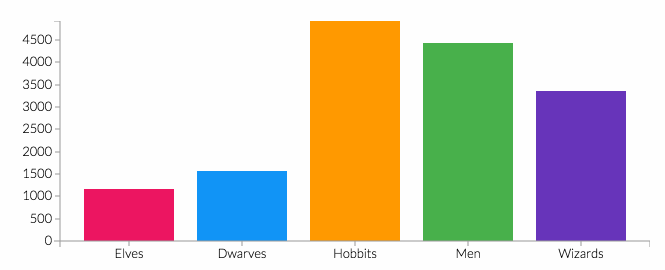KONSEP LEADERSHIP PERSPEKTIF FILSAFAT SUFISTIK AL-JILLI
DOI:
https://doi.org/10.33853/istighna.v5i2.207Keywords:
Insan Kamil, Leadership, al-JilliAbstract
Sufism as the core of Islamic teachings arises by providing solutions and therapies for human problems by getting closer to Allah the Creator. The opportunity of Sufism in dealing with psychological diseases of all human problems, increasingly widespread in this modern era. However, Sufism has been perceived as an inner practice that breaks away from worldliness, as well as in terms of leadership that is currently loaded with worldliness. however, if the teachings of Sufism are interpreted into the context of the nature that must be possessed by a leader, it will be visible the urgency of leadership with the framework of Sufism, as in the sufi teachings of Al-Jilli. This study uses the method of literature study by making a number of the results of previous researchers' studies as the main data source. The results of this study show that leadership is a process by which a person can become a leader (leader) through continuous activities so that it can influence the one he leads (followers) in order to achieve common goals. Although the perception that exists so far about Sufism is not so fixated on the world, it is not so with the interpretation of Sufi values in the conceptual framework of leadership. If referring to the doctrine of Sufi al-Jilli, namely his concept of the kamil man, then a leader should have criteria: (a) have the nature of jamal, (b) be aware of his duties as a servant and caliph, (c) simple, (d) attach importance to the principle of balance, (e) trust, (f) closely related to Allah, and (g) noble character.
Downloads
References
Abdullah, Taufik. dkk. Tth. Ensiklopedi Tematis Dunia Islam, jilid 4, Jakarta: PT Ichtiar Baru Van Hoeve al Jaili Syeikh abd al-Karim ibnu Ibrahim. Tth. Al-insân al-Kamil fi Ma’rifat al-Awakhir wa al-Awa’il, Kairo: Dar al-Fikr, juz 2 al Jaili, Syeikh Abd al-Karim Ibnu Ibrahim. Insan kamil, 2005. Surabaya: Pustka Hikmah Perdana Al-Mawardi. Tth. Al-Ahkan Al-Sulthaniyah, Mesir: Alhalabi As-Suwaidan, Thariq Muhammad dan Faishal Umar Basyarahil, Melahirkan Pemimpin Masa Depan, terj. M. Habiburrahim, 2005. Depok: Gema Insani Press Asy’ari, Musa. Filsafat Islam Sunnah Nabi Dalam Berpikir, 2002. Yogyakarta: LESFI Baharuddin. Paradigma Psikologi Islam, Studi Tentang Elemen Psikologi dari Al-Qur’an, 2004. Yogyakarta: Pustaka Pelajar Chittick, William C. Tth. The Sufi Path Of Knowladge (Tuhan sejati dan Tuhan-Tuhan Palsu), Yogyakarta: Qalam Chundori, Tutur, Dkk. Pendidikan Agama Islam, 2012. Purwokerto: UPT Universitas Jenderal Soedirman Corbin, Henry. Tth. Imajinasi Kreatif Sufisme Ibn ‘Arabi, cet 1, Yogyakarta: LKiS Daud Ali, Muhammad. Pendidikan Agama Islam, 1997. Jakarta: PT. Raja Grafindo Persada Husaini, Usman. Management, Teori, Praktik Dan Riset Pendidikan, 2006. Jakarta: PT. Bumi Aksara Kencana, Syafiie Inu. Al-Qur’an Dan Ilmu Administrasi, 2000. Jakarta: Rineke Cipta Mansyur, M. Laily. Ajaran Dan Teladan Para Sufi, 1999. Jakarta: PT. Raja Grafindo Persada Mutahhari, Murtadha. Pengantar Ilmu-ilmu Islam, 2003. Jakarta: Pustaka Zahra Nata, Abuddin. Akhlak Tasawuf, 2003. Jakarta: PT. Raja Grafindo Shihab, M. Quraish. Membumikan Al-Qur’an Fugsi Dan Peran Wahyu Dalam Kehidupan Masyarakat, 2007. Bandung: Mizan Winardi, Pemimpin Dan Kepemimpinan Dalam Management, 1983. Bandung: Alumni Yulistina, Tina. Kepemimpinan Model Nabi, 2007. Malang: Qalam Grup Yunus, Mahmud. Kamus Arab Indonesia, 1990. Jakarta: Hidakarya Zaini, M. Fudoli. Tth. Sepintas Sastra Sufi Tokoh dan Pemikirannya, Surabaya: Risalah Gusti
Downloads
Published
How to Cite
Issue
Section
License
Copyright (c) 2022 Slamet Susilo

This work is licensed under a Creative Commons Attribution-ShareAlike 4.0 International License.
Copyright Notice
Authors hold and retain copyright and grant the journal right of first publication with the work simultaneously licensed under a http://creativecommons.org/licenses/by-sa/4.0that allows others to share the work with an acknowledgment of the work's authorship and initial publication in this journal.

This work is licensed under a Creative Commons Attribution-ShareAlike 4.0 International License.
















